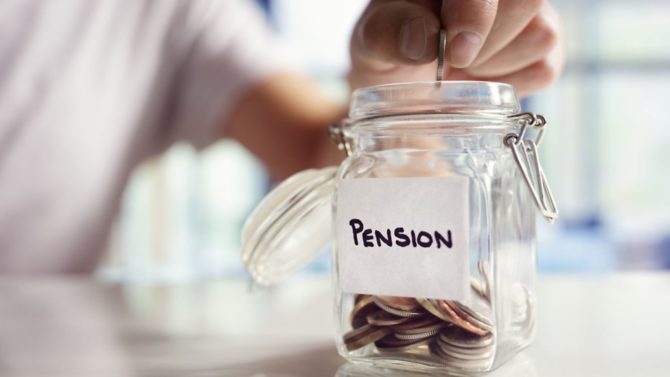How much tax do you pay on a UK pension in France?

If you are retiring to France then make sure you understand all the options for your UK pension and how much tax you might pay
Rob Kay is a Senior Partner at Blevins Franks international tax and wealth management advisers
Deciding what to do with your pension could be one of the most important financial decisions you make as you approach retirement, so it is important not to rush into any decisions. As well as securing your financial security, you need to make sure you meet all your obligations under UK and French tax law without paying more tax than necessary.
If you are retiring to France, make sure you understand all your pension options as well as the tax implications. What you do now could mean the difference between paying as little as 7.5% or as much as 45% tax on your pension income!
Can I choose which country I’ll pay tax in?
No, you can’t choose the country. If you meet certain conditions, the French authorities will consider you resident for tax purposes, in which case you will be subject to French tax on all your income, including your state pension and UK occupational and private pensions. Only UK government service pensions (local authority, army, police and some NHS departments, for example) remain taxable in the UK. However, they still count towards your annual income for the purposes of calculating your French tax rate, so you must include them on your French tax return.
_______________________________________________________
Don’t miss
10 French tax residency myths debunked
_______________________________________________________
Will I have to pay tax in the UK and France?
No, thanks to a double tax arrangement, you will not have to pay tax twice on the same income.
How much will I pay?
If you’re resident in France, your UK pension income will be taxed at the normal French income scale rates, which range from 0% under €9,807 to 45% over €153,783.
Rather than taxing the whole amount, the French tax authorities offer a 10% allowance on gross pension income, up to €3,752 per household. They also work out your tax rate according to a ‘parts’ system, which divides your total household income by the number of household members. For couples where one spouse receives a much higher income than the other, this results in a lower overall tax bill than if they were assessed individually.
Will I pay tax on cash lump sums?
UK residents can take out a quarter of a ‘defined contribution’ pension as tax-free cash, but if you are a French resident, any lump sum becomes taxable in France as income, even if it never leaves Britain. The only exceptions are if your withdrawal is due to circumstances known as an ‘accident of life’, such as invalidity, unemployment or death of a spouse.
However, it is possible to limit French tax on a UK lump sum to a fixed rate of just 7.5% with an uncapped 10% allowance. This is only available to French residents who meet two conditions: the pension contributions must have been deducted from your or your employer’s taxable income, and you generally have to take the whole pension fund at once (you are unlikely to be eligible if you have already started taking pension benefits).
_______________________________________________________
Don’t miss
The best places to retire to in France
Completing your French income tax return
_______________________________________________________
Will I have to pay social charges?
As with all income in France, ‘social charges’ are payable on top of income tax – for pensions this is an extra 9.1%. However, you will avoid social charges completely if you are not affiliated to the French healthcare system or you hold a ‘Form S1’ (available once you start receiving the UK state pension). So, if you are under the UK retirement age and considering taking a lump sum from your pension, it may be worth delaying joining the French healthcare system in order to prevent unnecessary social charges. Taking private medical insurance instead could save you 9.1% of your pension funds.
Should I consider investing in a QROPS?
Even if it is possible to take your entire pension in cash and pay just 7.5% in French tax, this may not necessarily be the best approach. You may find advantages in reinvesting funds, for example, in a tax-efficient ‘assurance vie’, or in transferring pensions into a Qualifying Recognised Overseas Pension Scheme (QROPS) to unlock currency and estate-planning benefits. There is no one-size-fits-all solution though, and differences between providers and jurisdictions could also affect the tax benefits, so take care to explore your options.
Pensions are a complex, specialist area – and a key target for pension scams – so make sure your adviser is regulated by the UK’s Financial Conduct Authority and understands the interaction between French and UK taxation. They can recommend the best pension solution for your circumstances and ensure you make the most of your retirement in France.
Like this? You might enjoy:
What healthcare are retirees entitled to in France
Share to: Facebook Twitter LinkedIn Email


